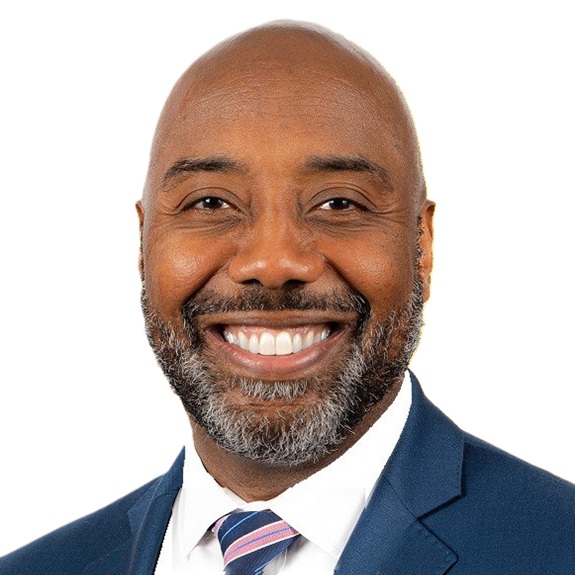Are You Maximizing Your Tax-Exempt Bucket?
Remember the child’s game hide-and- seek? As adults, most of us are still playing it. The difference is this time it’s with the IRS.


Profit and prosper with the best of Kiplinger's advice on investing, taxes, retirement, personal finance and much more. Delivered daily. Enter your email in the box and click Sign Me Up.
You are now subscribed
Your newsletter sign-up was successful
Want to add more newsletters?

Delivered daily
Kiplinger Today
Profit and prosper with the best of Kiplinger's advice on investing, taxes, retirement, personal finance and much more delivered daily. Smart money moves start here.

Sent five days a week
Kiplinger A Step Ahead
Get practical help to make better financial decisions in your everyday life, from spending to savings on top deals.

Delivered daily
Kiplinger Closing Bell
Get today's biggest financial and investing headlines delivered to your inbox every day the U.S. stock market is open.

Sent twice a week
Kiplinger Adviser Intel
Financial pros across the country share best practices and fresh tactics to preserve and grow your wealth.

Delivered weekly
Kiplinger Tax Tips
Trim your federal and state tax bills with practical tax-planning and tax-cutting strategies.

Sent twice a week
Kiplinger Retirement Tips
Your twice-a-week guide to planning and enjoying a financially secure and richly rewarding retirement

Sent bimonthly.
Kiplinger Adviser Angle
Insights for advisers, wealth managers and other financial professionals.

Sent twice a week
Kiplinger Investing Weekly
Your twice-a-week roundup of promising stocks, funds, companies and industries you should consider, ones you should avoid, and why.

Sent weekly for six weeks
Kiplinger Invest for Retirement
Your step-by-step six-part series on how to invest for retirement, from devising a successful strategy to exactly which investments to choose.
Paying state and federal taxes is part of life. Yet, of course, we all want to keep hold of as much of our income as possible too. That’s where what I like to call the grown-up version of hide-and-seek comes in. The more legal “hiding places” we can find for our money, the more we can stop the government from taking too large a cut.
However, rather than asking tax officials to close their eyes and count to 10, winning this particular game relies on having a tax-efficient financial plan. And that first means separating your finances into these three buckets:
- Taxable: Income like a salary or dividends on which we immediately pay tax and that’s designed to cover our short-term liquidity needs.
- Tax-deferred: Money in, say, a retirement plan or 401(k) that’s taxed when we use it and will fund us from retirement through death.
- Tax-exempt: Investments such as cash value life insurance that don’t get taxed at all and can be used for everything in between, like buying a holiday home, starting a business, putting the kids through college, or supplementing our retirement funds.
The advantage of this approach is that it shows you exactly where your money currently sits and, crucially, whether you’re maximizing that all-important tax-exempt bucket. Spoiler alert: Most people find they aren’t, which means they’re giving away more of their income than they need to – be it now or in the future. So, if you’re one of them, here are four ways to start boosting your tax-exempt funds today.
From just $107.88 $24.99 for Kiplinger Personal Finance
Become a smarter, better informed investor. Subscribe from just $107.88 $24.99, plus get up to 4 Special Issues

Sign up for Kiplinger’s Free Newsletters
Profit and prosper with the best of expert advice on investing, taxes, retirement, personal finance and more - straight to your e-mail.
Profit and prosper with the best of expert advice - straight to your e-mail.
The backdoor Roth
With a backdoor Roth, you contribute to a non-deductible IRA and then sweep the money from there into a tax-exempt Roth IRA. You can do this up to the annual IRA contribution limit, which is currently $6,000 ($7,000 if you’re age 50 or over). Note, though, that this works best if you only have a single IRA. Otherwise, it can become very complex and cumbersome to track your cost basis across multiple IRAs in the long-term.
The mega backdoor Roth
If you’re in a position to save more than the annual IRA contribution cap, the mega backdoor Roth could be the way to go, if your plan offers it. Here, you take the non-deductible investment limit on your retirement plan — such as a 401(k) — and, if it’s more than $6,000 ($7,000 if you’re aged 50 or over), you invest it in your plan before moving it straight into your Roth IRA. That way, you benefit from a larger tax-exempt contribution. In order for this strategy to work, your 401(k) plan must allow after-tax contributions and in-service distributions of after-tax funds.
Health savings account (HSA)
In 2022 you can invest up to $3,650 as an individual to your HSA without paying tax on that contribution. As a family, you can add up to $7,300, and there’s also a $1,000 catch-up at age 50 and older. If you use the money to pay for anything that the IRS deems a qualified medical expense before the age of 65, you won’t pay tax when you spend it. Then at age 65, that limitation goes away and you’re free to spend the money on anything. All without ever being taxed on it.
Cash value life insurance
The amount you invest in a cash value life insurance policy accumulates on a tax-deferred basis, with tax only payable on any financial gains when the policy comes to an end. In the meantime, you can make unlimited contributions and, unlike with a Roth IRA, there are no financial penalties for early withdrawals. This means you can essentially borrow from yourself to pay major expenses or solve liquidity issues – something many business owners did during the 2008 financial crisis and, more recently, the pandemic. As long as the policy is in-force, you won’t pay tax on that “loan.”
There are a few other ways to invest in tax-exempt funds, including purchasing municipal bonds, which offer a powerful tax exemption. For example, if Georgia residents buy Georgia municipal bonds, they would not pay federal or state income tax on the yield. However, these also bring a credit risk, so they should be approached more cautiously than the other options, ideally following advice from a qualified financial adviser.
Whatever route you decide to take, the key is to ensure you keep on maximizing your tax-exempt bucket while balancing it with your taxable and tax-deferred funds too. That way, you can maintain a financial plan that matches your spending expectations in the short-, medium- and long-term. Time to hone those hide-and-seek skills!
Profit and prosper with the best of Kiplinger's advice on investing, taxes, retirement, personal finance and much more. Delivered daily. Enter your email in the box and click Sign Me Up.

Stephen Dunbar, Executive Vice President of Equitable Advisors’ Georgia, Alabama, Gulf Coast Branch, has built a thriving financial services practice where he empowers others to make informed financial decisions and take charge of their future. Dunbar oversees a territory that includes Georgia, Alabama and Florida. He is also committed to the growth and success of more than 70 financial advisers. He is passionate about helping people align their finances with their values, improve financial decision-making and decrease financial stress to build the legacy they want for future generations.
-
 5 Vince Lombardi Quotes Retirees Should Live By
5 Vince Lombardi Quotes Retirees Should Live ByThe iconic football coach's philosophy can help retirees win at the game of life.
-
 The $200,000 Olympic 'Pension' is a Retirement Game-Changer for Team USA
The $200,000 Olympic 'Pension' is a Retirement Game-Changer for Team USAThe donation by financier Ross Stevens is meant to be a "retirement program" for Team USA Olympic and Paralympic athletes.
-
 10 Cheapest Places to Live in Colorado
10 Cheapest Places to Live in ColoradoProperty Tax Looking for a cozy cabin near the slopes? These Colorado counties combine reasonable house prices with the state's lowest property tax bills.
-
 Don't Bury Your Kids in Taxes: How to Position Your Investments to Help Create More Wealth for Them
Don't Bury Your Kids in Taxes: How to Position Your Investments to Help Create More Wealth for ThemTo minimize your heirs' tax burden, focus on aligning your investment account types and assets with your estate plan, and pay attention to the impact of RMDs.
-
 Are You 'Too Old' to Benefit From an Annuity?
Are You 'Too Old' to Benefit From an Annuity?Probably not, even if you're in your 70s or 80s, but it depends on your circumstances and the kind of annuity you're considering.
-
 In Your 50s and Seeing Retirement in the Distance? What You Do Now Can Make a Significant Impact
In Your 50s and Seeing Retirement in the Distance? What You Do Now Can Make a Significant ImpactThis is the perfect time to assess whether your retirement planning is on track and determine what steps you need to take if it's not.
-
 Your Retirement Isn't Set in Stone, But It Can Be a Work of Art
Your Retirement Isn't Set in Stone, But It Can Be a Work of ArtSetting and forgetting your retirement plan will make it hard to cope with life's challenges. Instead, consider redrawing and refining your plan as you go.
-
 The Bear Market Protocol: 3 Strategies to Consider in a Down Market
The Bear Market Protocol: 3 Strategies to Consider in a Down MarketThe Bear Market Protocol: 3 Strategies for a Down Market From buying the dip to strategic Roth conversions, there are several ways to use a bear market to your advantage — once you get over the fear factor.
-
 For the 2% Club, the Guardrails Approach and the 4% Rule Do Not Work: Here's What Works Instead
For the 2% Club, the Guardrails Approach and the 4% Rule Do Not Work: Here's What Works InsteadFor retirees with a pension, traditional withdrawal rules could be too restrictive. You need a tailored income plan that is much more flexible and realistic.
-
 Retiring Next Year? Now Is the Time to Start Designing What Your Retirement Will Look Like
Retiring Next Year? Now Is the Time to Start Designing What Your Retirement Will Look LikeThis is when you should be shifting your focus from growing your portfolio to designing an income and tax strategy that aligns your resources with your purpose.
-
 I'm a Financial Planner: This Layered Approach for Your Retirement Money Can Help Lower Your Stress
I'm a Financial Planner: This Layered Approach for Your Retirement Money Can Help Lower Your StressTo be confident about retirement, consider building a safety net by dividing assets into distinct layers and establishing a regular review process. Here's how.